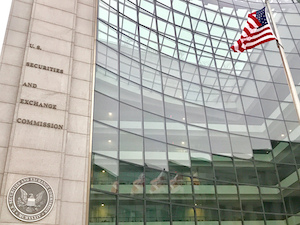 The Securities and Exchange Commission has adopted new requirements for the way shareholder reports are presented and transmitted by mutual funds and exchange traded funds (ETFs), as well as amendments to the advertising rules to “promote more transparency” about investment costs.
The Securities and Exchange Commission has adopted new requirements for the way shareholder reports are presented and transmitted by mutual funds and exchange traded funds (ETFs), as well as amendments to the advertising rules to “promote more transparency” about investment costs.
The Commission adopted these new rules Oct. 26 in a unanimous 5-0 vote. The SEC first proposed the new rules in August 2020.
What’s Required?
The new rule will require mutual funds and ETFs that are registered on Form N-1A (“open-end funds” or “funds”) to transmit what the SEC describes as “concise and visually engaging” shareholder reports that highlight key information, such as fund expenses, performance and portfolio holdings. In addition, the instructions for the revamped reports will encourage the use of graphic and text features to make them more effective. Funds will be required to tag the information in their reports in a structured data format.
Further, the amendments require funds to make certain information that may be more relevant to investors and financial professionals who desire more in-depth information available online and available for delivery free of charge to investors on request. That information will no longer appear in funds' shareholder reports but will remain available to investors on a website identified in the shareholder report and must be filed semi-annually with the Commission.
The SEC also adopted amendments to exclude open-end funds from the scope of rule 30e-3, which generally permits certain registered investment companies to satisfy shareholder report transmission requirements by making these reports and other materials available online and providing a notice of the reports’ online availability, instead of directly providing the reports to shareholders. Instead, open-end fund shareholders will directly receive the new tailored annual and semi-annual reports, either in paper or—if the shareholder has so elected—electronically.
“Shareholder reports are amongst the most important documents that fund investors receive,” SEC Chair Gary Gensler said in a statement. “These reports, however, often are more than 100 pages in length. As a result, a retail investor looking to understand the performance, fees, and other operations of a mutual fund or exchange-traded fund may need to sift through extensive financial information. Today’s final rules will require fund companies to share a concise set of materials that get to the heart of the matter.”
While expressing some reservations about the rulemaking, Commissioner Hester Peirce even offered support for the shareholder report rulemaking, noting that it “represents a worthwhile next step in the Commission’s ongoing effort to improve the quality and usability of mutual fund disclosure.”
Fee and Expense Information in Ads
Meanwhile, the Commission also adopted amendments to investment company advertising rules to require that fee and expense presentations in registered investment company and business development company advertisements and sales literature be consistent with relevant prospectus fee table presentations and be reasonably current. The amendments also address representations of fees and expenses that could be materially misleading, the SEC notes.
The amendments will become effective 60 days after publication in the Federal Register. The Commission is providing an 18-month transition period after the effective date to allow mutual funds and ETFs adequate time to adjust their shareholder report and transmission practices.
The Commission is also providing an 18-month transition period after the effective date to comply with the final amendments to the advertising rules. The rule amendments that address representations of fees and expenses that could be materially misleading will apply on the effective date, the SEC further advises.
Oct. 26 was a busy day for the SEC, as the Commission also proposed new rules requiring investment advisers to conduct due diligence on outsourcing certain services, as well as adopted final “clawback” rules requiring the recovery of erroneously awarded compensation as required by the Dodd-Frank Act.

